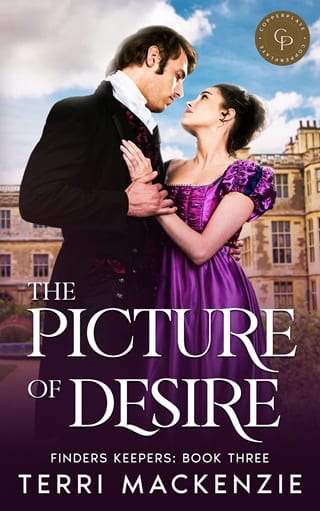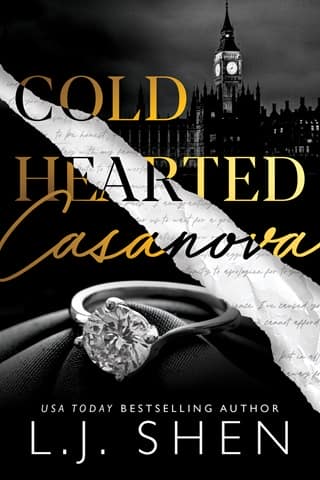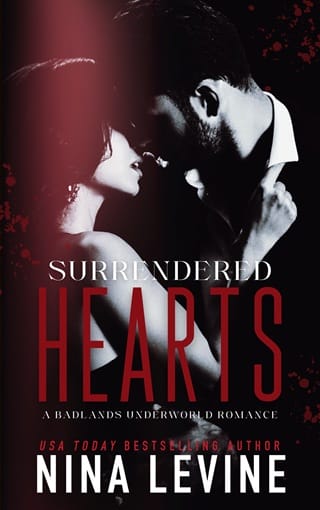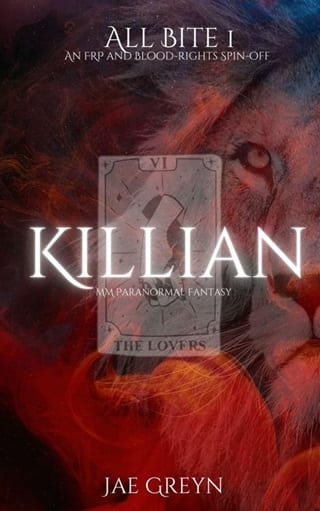Chapter Eight
PRESENT DAY
February 1815
Louisa swept into Mr Vincent Knight's receiving room with every ounce of dignity she could summon. The carriage—a plain hackney—that had brought her here lingered around the corner from the large house, and she wore a pretty bonnet that had the advantage of concealing her face from view.
It would not do for news of this clandestine visit to reach the ears of the ton .
This would not be the first time she had visited a gentleman's house on her own. But this was not merely a visit of pleasure—after his threats, she needed to determine what proof he had, and how seriously she should take him as an enemy.
He had claimed to possess a letter from her husband that outlined the plan, but although Bolton had not been the cleverest man, he had not been that foolish. After all, his reputation would also have been on the line. Perhaps he had boasted about his scheme while drunk and Knight had merely remembered it. In which case, she would not have to worry about his claims—no one would believe him.
That was the best-case scenario. But given the quiet confidence of his threat, she had the niggling suspicion that he had the means to be believed.
If so, she would have to think very carefully about how to proceed.
One thing was for certain: she would not allow this man to get the better of her.
As the minutes ticked by, she sank into the green-upholstered sofa and produced a pocket book of poetry from her reticule, which she had brought for this very purpose. As a result, she was deep in reading when he finally entered the room.
"Mr Knight," she said, snapping the book shut. His gaze fell on it and irritation crossed his face. No doubt he had hoped to inconvenience her. "Thank you for meeting with me."
He bowed. "I had no intention of turning you away. I presume this is about our conversation yesterday?"
"You cannot butter dung, sir," she said sweetly. "Call it as it is: you threatened me."
He inclined his head. "As you say."
"But you are correct. I'm here to discuss the terms."
He sat in the armchair opposite, a small smile playing on his lips. "I believe I made my terms perfectly clear."
"Yes, in the event that I agree to them." She lifted one shoulder in a shrug. "You can hardly expect me to proceed on the back of a threat alone."
"Ah," he drawled. "You would like to assess the quality of my evidence."
Well, at least he wasn't as stupid as Bolton had been. "You mentioned a letter. I must see it."
"Not just a letter." His unsettlingly cold gaze landed on her, and she resisted the urge to shiver. A fox indeed, sly and with large teeth. "Although that would be enough to get people talking."
"Not enough to justify the sum you demanded."
"Perhaps not," he admitted. "Fortunately, I have more. Bolton's letter merely illustrates the how—but I have the ear of your tutor, and he assures me that he would be able to identify your paintings if he were shown them."
The floor wavered underfoot.
"My tutor?" She kept her voice cool.
"A Mr Thomas Hyatt. Perhaps you might recognise the name."
"And he's prepared to support your claims?"
Knight's smile was unpleasant. "He's unaware of my claims, but let me just say that he is persuadable, once one knows how best to persuade him."
More blackmail, she thought distantly. And more compelling than letters, which even if they were in Bolton's hand could be dismissed as a poorly placed brag. That would have been challenging, but perhaps she would have risked it. Prinny was friends with her , after all, not some upstart like Mr Knight.
But if Thomas Hyatt could be persuaded. If he supported Knight's claims . . .
"That's not all," Knight said, evidently enjoying her discomfort. "I have in my possession two of your paintings."
"Bolton's paintings," she corrected.
"So you might think, but no. One has Bolton's signature, to be sure, though its subject matter is . . ." He clucked his tongue. "Well, no lady ought to be painting these things."
One of her erotic pieces, then. Unfortunate, but she could still claim it was Bolton's work. After all, who would suspect that a delicately bred lady would ever think to paint the male nude form?
"The other, however, is by a certain Louisa Picard," he continued. "I had the pleasure of viewing it in the Royal Academy Summer Exhibition several years ago, and since purchased it. A distinctive work, I would say. A self-portrait, perhaps."
It was not a self-portrait, but Louisa knew the one to which he was referring. Domestic Bliss. At the time, it had set the ton talking, and although she had never directly claimed it as her own work, it had a small LP in the bottom corner. Louisa Picard.
She had painted it after her mother once again talked about her duty to her husband, as though the goal of domesticity was all a lady should aspire towards. As though domesticity could only be a woman surrounded by her children in her home. Not, as she had depicted in her painting, an employed lady.
Not once had she imagined that the painting, auctioned off when her father died, could ever have been held against her in this way.
She raised her gaze to Knight's. "Forgive me, sir, for not taking you on your word alone."
"You would like to see the paintings with your own eyes?"
"I would."
He nodded and rose. "Follow me, my lady." There was a mocking note to his voice, and she had the thought that she probably should not follow this man into the bowels of his house. It would be so easy for him to overpower her, and she had come here clandestinely; no one knew of her whereabouts.
Then again, if he harmed her, he would not get her money.
She followed him down the corridor to a tired drawing room, the furniture scuffed and almost certainly rented. The receiving room had been well dressed and elegant; everything else in the house felt worn. Her suspicions were correct: he truly was in need of the money.
Then she turned and her thoughts about his furniture left her body. There on the wall were the two paintings he had mentioned, side by side. Like that, the commonalities between them were marked. And she had forgotten in what detail she had painted the sexual acts on the canvas before her. Her face almost heated, but at the last minute she dismissed the shame. Here was evidence of what she had done to survive. If anyone was to be ashamed of it, it should be Lord Bolton.
One of the girls in her second painting had the same face as in Domestic Bliss . An accident, but notable, the same way an author might repeat a phrase between books.
For a moment, she had the wild idea that she might be able to destroy them. Throw herself at them, find flint and steel or a match and set them ablaze. But there was no recourse for that now.
"You see," Knight said from behind her. "The similarities are unmistakable."
They were indeed, and it would be easy enough to find proof that she had painted the first and presented it to the Royal Academy.
If the second were connected to her, and if the Prince of Wales was convinced beyond all doubt that she had been the one to paint it, no respectable person would ever entertain her again. Caroline would no doubt think it all a big joke, but Louisa had built a life here in London. She would have her fortune, but nowhere to spend it.
"Well?" Knight asked. "Do you agree to my terms?"
This was so much worse than she could ever have imagined. And to think the key to her ruin lay in such a grubby house.
"It seems," she said, never looking away from her first painting, made when she had still been so young and innocent of the world, "that I have no choice."
Henry had not known it was possible to be so wearied by another person's company in so short a time. Yet here he was, facing his brother over his desk, two minutes into a conversation he already knew was going to take a toll.
Oliver was not the brother he remembered from nine years ago. Now eighteen, he was accustomed to being the baby of the family, coddled then set free upon university life to do as he wished.
And what he wished was, apparently, to raise all sorts of hell.
Henry was not often made to feel old, but he felt ancient to his bones when he was faced with his fresh-faced baby brother.
"It seems you are failing your classes," he said.
Oliver shifted, a mutinous expression on his face. "That letter was meant for Father, not you."
"Better someone read the letter rather than have it languishing on Father's desk for three months before he consigns it to the fire," Henry said shortly. "The Dean also writes that you are the orchestrator of many pranks against your fellow students and tutors. Most recently, you defiled the statue of Queen Mary II."
Oliver paled a little, his sandy hair falling over his forehead as he ducked his head. No doubt he had been hoping no one would have discovered he was behind that particular act. Henry sighed as he lowered the letter back onto the desk. His brother had always been impulsive; at nine, that had been an endearing trait. As a man, it was considerably less endearing. Oliver was becoming precisely the sort of degenerate their father was known for being, and Henry felt near powerless to stop it.
"I did not send you to Oxford so you could fail to attend your classes," he said, trying and failing to keep the irritation from his voice.
Oliver scowled. "You did not send me to Oxford. Nathanial did."
"Does that give you the right to deface university property?"
"You don't have the right to lecture me about it."
"I do when the bill is sent to my door." Another bill when they were drowning in them. At this rate, even Miss Winton's dowry would not be enough to repair the damage to the estate. "Neither Nathanial nor I sent you to Oxford so you could cultivate a drinking problem."
His younger brother flushed. "I don't have a drinking problem."
"So this act of defiance was committed sober?"
There was a notable pause. "It was not," Oliver muttered. "But if you expect me to do nothing but stay inside and study when—"
"That is all I did."
"You," Oliver said, his lip curling. "And because you were staid before your time, you expect me to be, too?"
"At the very least, I expect you not to cause havoc. Your education will be instrumental in finding you an occupation. When you graduate, our father will not be able to support you."
"How is it I can know more about the world than you?" A scowl marred Oliver's boyish face. "I am ten years your junior and yet you still do not understand that it is not the quality of my education that matters, merely that I have one."
"You may not have one if you continue to fail your classes." Henry planted his hands against the desk and rose. Above all else, he longed to be free of a destitute estate and a family that wished, at all turns, to further sink his hopes of inheriting anything at all. "If all you had wanted to learn was how to be a degenerate, you may as well have stayed home." The instant the words were out of his mouth, he regretted them. It was all very well for him to disapprove of his father's actions, but he should not have voiced them to Oliver. "Is there anything else you wished to say?"
A mulish expression crossed Oliver's face. "I wish you had never returned to England."
"Do you?" Henry said dryly, shuffling through the papers on his desk. Most belonged to his father, but someone should address them. "Well, then, that makes two of us."
Commotion beyond the door put a stop to any further conversation. Their mother gave a shriek of delight from the hallway, and Henry opened the door to chaos. Oliver slipped away, taking the opportunity to end the interview, but Henry's attention was arrested by his oldest sister, Theodosia, standing in the hall with a babe in her arms and her husband, the Duke of Norfolk, standing protectively behind her.
"What are you doing in London?" their mother demanded, kissing Theo on the cheek. "What if dearest Charles catches a cold?"
In Henry's opinion, ‘dearest Charles', who was a chubby, red-faced child with disconcertingly plump hands, looked like the picture of health.
"Henry!" Theo said, approaching him with a wide smile. "I was hoping to catch you. Nate had business in London and I thought I would visit. Mama said you're getting married?"
"I expect so," he said, and was immediately horrified when Theo unceremoniously deposited Charles in his arms. "What are you doing?"
"He should know his uncle. And if you're readying to marry, you should become more accustomed to holding infants."
Charles was heavy. He also squirmed, and his red face twisted alarmingly, mouth opening. Henry knew by the way the women had cooed over him that he was commonly considered ‘sweet' and ‘a darling', but as far as he was concerned, the baby could have been a different species. With tiny, square teeth in his mouth.
"Don't let him suck on your finger," Theo advised. "He's teething and he will think nothing of chewing on you."
"Take him back before I drop him on his head."
She sighed in exasperation. "You won't drop him. Just hold him."
"I am holding him." And he would rather not be. The fact his marriage would likely result in children of his own was a fact he tried to think of as little as possible. The expectation was that he would have, at least, a spare and an heir. If he was lucky, he might achieve that with just two, but he would likely have more.
He would have shuddered at the thought if he was not holding the future Duke of Norfolk.
Theo relented and relieved him of his burden. "You know, you really ought to get used to it."
It was almost an incentive not to marry.
Charles gurgled, diverting Theo's attention, and Henry took the opportunity to change the subject, hoping his sister never brought up children again.
 Fullepub
Fullepub 



